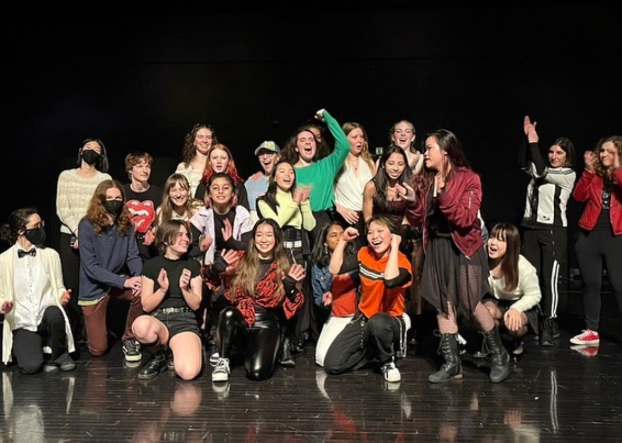K-Pop Takes Over the World
February 17, 2023
“Liking K-Pop was the best decision I made,” said Anna Nodsle, ‘23. K-Pop, or Korean Pop music, has become increasingly popular in the United States. It has crept into music charts, major award shows, radio stations, and more. Groups like BTS have had multiple #1 Hits on the Billboard Hot 100, and Blackpink is set to headline at the Coachella Music Festival. These groups’ impact on the American music scene is undeniable. The rest of the K-Pop industry has followed suit, with groups like Twice, TXT, Newjeans, Straykids, and Aespa experiencing significant growth in America.
Elizabeth Wang, the founder of the Minnetonka K-Pop Dance club (KDC), now a freshman at Northwestern, said what drew her to K-Pop was that “there was just so much content about the artists themselves.”
She also said she was constantly engaged with all the “content relating to their music too.” She enjoyed the constant interaction between artists and fans through digital means. Compared to western artists, K-Pop groups put out much more music and content. Most K-Pop groups put out at least 2 EPs a year, if not more.
When taking a closer look at K-Pop at MHS, the growth of K-Pop is even more apparent. Elizabeth Wang described how “when [she] founded KDC [her] sophomore year, there were less than 10 members.”
Today that number has jumped to “30 people actively participating” in practices and performances and upwards of “60 people in the GroupMe.” KDC has had various performances, including the talent show and charity events like Raise the Roof and uploading dance covers on their YouTube channel.
Nodsle said what resonated most about K-Pop to her “was seeing who were living their best lives, dancing and seeing, and seeing those people who looked like me, and having that representation, especially growing up in Minnetonka.”
K-Pop’s growth over the past few years is more than apparent, and there seems to be nothing to slow down this growth. Anna expressed hopes to “break the barrier” between K-Pop and other genres of music, “not just on a Minnetonka level, but on a global scale.” With this growth rate, in ten years’ time, we’ll see K-Pop as not Korean pop music but simply as pop.






























